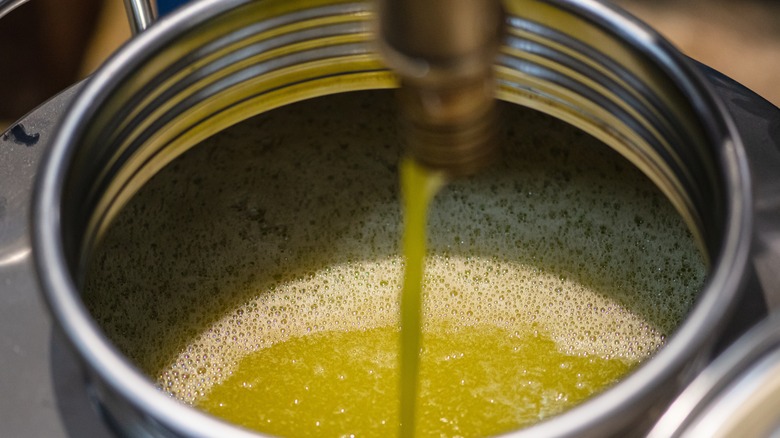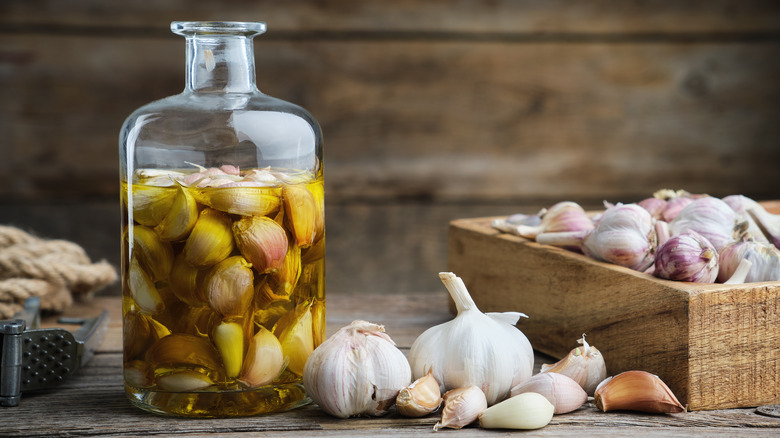The 2 Types Of Cooking Oil That Fare Better In The Fridge
While it may seem reasonable to store all your cooking oils on a lazy Susan on the counter or in a cabinet next to the stove, doing so could actually compromise the quality of some of those bottles. A better place to store certain types of oil — particularly cold-pressed and infused oils — is in the refrigerator. By doing this, you not only extend their shelf life, but also keep them as flavorful as possible.
Some cooking oils are shelf-stable, thanks to a multi-step extraction process involving high heat, chemical solvents, and centrifuges. For instance, that peanut undergoes an extensive journey to become the peanut oil on your counter that you reach for when making stir-fry. Although this treatment creates a stable product with a high smoke point, it significantly mutes the taste and fragrance.
These oils — best suited for frying, broiling, and searing — are perfectly fine when stored on the countertop. On the other hand, more flavorful and delicate oils, such as infused oils and the cold-pressed Italian olive oil you brought back from your Tuscan vacation, should be kept in the refrigerator.
Why cold-pressed oil needs to stay cold
Cold-pressed oils, also known as expeller-pressed, cold-drawn, or virgin oils, are produced by applying pressure to soft, oil-producing fruits, legumes, and seeds like coconuts, walnuts, olives, and sunflower seeds. These oils are not treated with heat, allowing for better preservation of flavor. Because they undergo less processing and retain some sediment, they are more prone to spoilage. Nowadays, you can often find both cold-pressed and refined versions of many different oils at the supermarket.
Warm temperatures, contact with oxygen, and exposure to light can all accelerate spoilage. Storing these oils in the refrigerator protects against all these factors. While cool temperatures may cause the oil to solidify or turn cloudy, this does not affect its quality. Simply allow the oil to sit at room temperature, and it will return to its original state. Even when stored properly, it's best to use a bottle of cold-pressed oil within one to two months after opening to maintain optimal freshness.
If it seems inconvenient to search through the fridge every time you need your go-to extra virgin olive oil, consider decanting a small amount into a separate bottle for quick use. This way, you have easy access without keeping a large bottle at or above room temperature.
Storing infused oils in the fridge is the safe and tasty option
Infused oils are created by steeping fresh or dried ingredients like chilies, herbs, alliums, or citrus in oil to flavor it. Although these extra ingredients enhance the taste, they also make the oil more susceptible to spoilage. This is especially true for oils infused with fresh ingredients; according to PennState Extension, the water content in fresh garlic or herbs can create an environment conducive to the growth of "Clostridium botulinum," the bacteria that causes botulism.
However, there's no need to worry. To produce infused oils safely, commercial manufacturers must adhere to a number of mandated protocols, including the acidification of fresh ingredients and specific ratios for infusing flavor components into oil. With careful attention to detail, it's also possible to safely infuse oils at home. Whether your infused oil is mass-produced or homemade, storing it in the refrigerator is the safest option.



